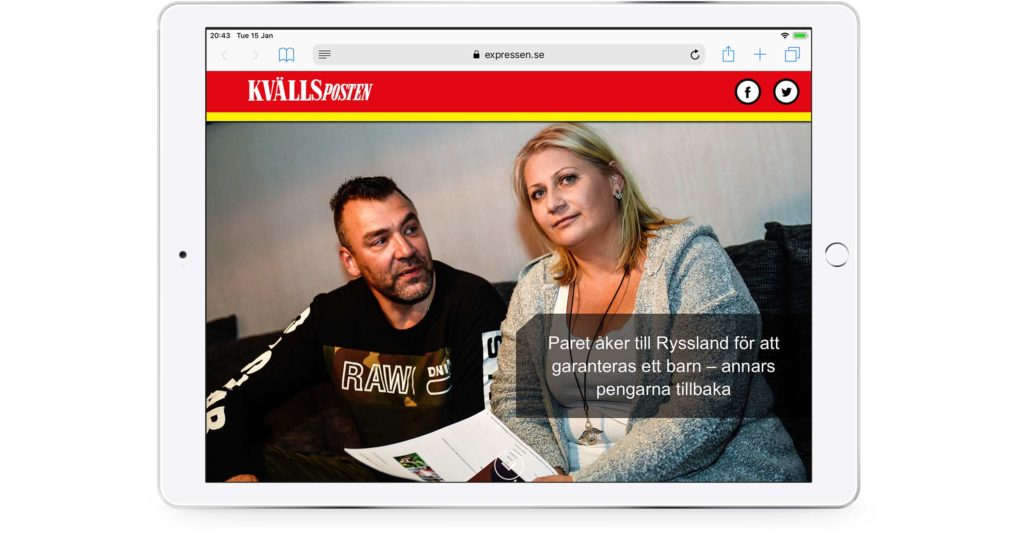
Expressen.se, 17 Nov 2018 18:11. Text: Lars-Olof Strömberg. Photo: Jens Christian
Original article & video on Swedish
Translation to English
The struggle for a child sometimes knows no limits.
When the Swedish hospital closed the door Monika Oscarsson, 44, and husband André, 47, saw no other option than looking across the Baltic Sea.
For 240,000 Swedish crowns they will have a living child. If this fails, the money will be refunded.
There is a warm inviting light coming from the beautiful yellow-painted wooden villa in Färlöv outside of Kristianstad in southern Sweden.
Here Monika and André Oscarsson have lived for four years and created their family paradise. The sound of hammers have echoed while the house has been rebuilt to fit them.
But all the time there was something missing in their lives – they have a dream of a common child.
"Having children was something we decided almost immediately," both say, looking lovingly on each other.
The struggle for a child took Monika, 44, and André, 47, to Russia
The couple met already during their youth. At one point they worked at the same workplace, Nolato in Kristianstad.
"Love was already there at that time, but neither of us dared to take the step," Monika says.
Met again
Many years later, their paths crossed again.
"I saw you in the public swimming pool in Kristianstad, but did not dare to seek contact," says Monika.
By then she had moved back home from Stockholm and André had separated from his wife and had a daughter.
It was André who by incident found Monika's profile on Facebook.
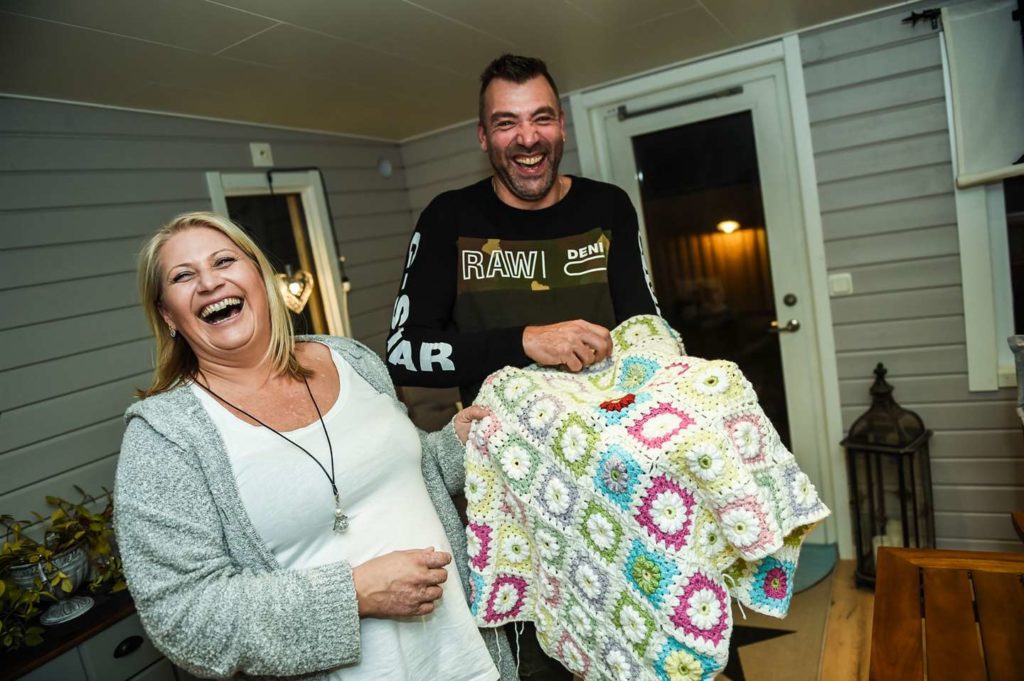
Monika and André have made their first baby felt. For the dream of a common child they are forced to pay around 300,000 SEK.
Photo: Jens Christian
“I will meet that girl. I will not let her go again. The thoughts went on like that,” he says.
Monika tells about their first meeting, when her legs felt very shaky.
"None of us wanted the feelings to pass us by again," she says.
The couple got engaged in Prague 2013 and married in Vittskövle church the following year with family and friends present.
Throughout the love trip, thoughts of a common child were present.
Leaving something behind
"You are born, you die and you leave something behind. Life's meaning is reproduction,” says Monika.
But Monika was 37. André had already passed 40.
"We realized we had very little time," both say.
Monika visited the gynecologist and soon threw away the pill. But it didn’t work. There was never any sign of her being pregnant.
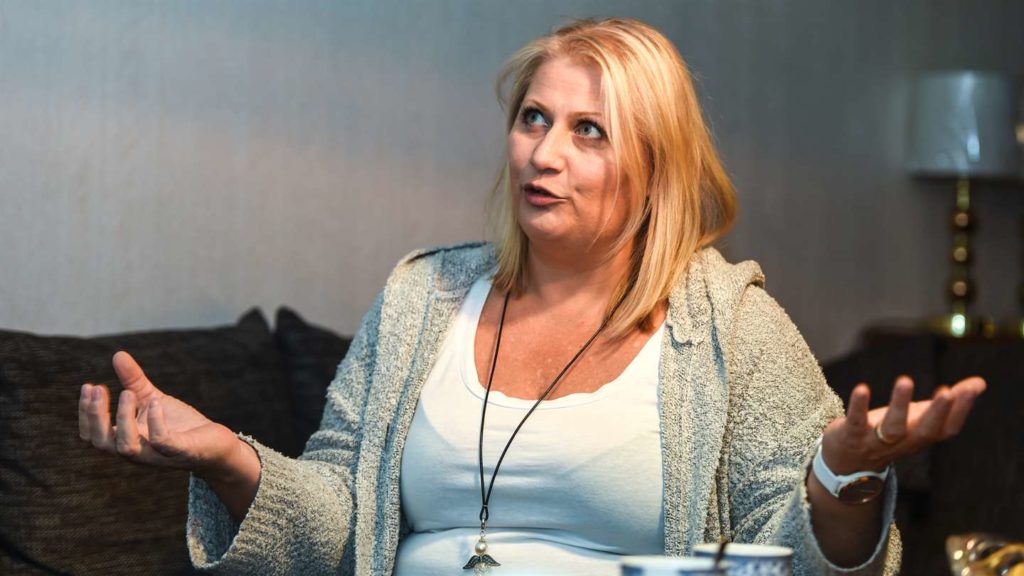
I've always loved children, says Monika. But you have to meet the right one and I have done that in André.
Photo: Jens Christian
"We tried everything, drank algae, took herbal medications and endured acupuncture, but nothing happened,” both tell.
At the same time, friends and family tried to encourage the couple not to think so much about the matter, but to make sure that they were just relaxed.
The couple itself felt it was important that André's daughter, as much as possible, also was part of the planning for the new and larger family.
Hope and despair
The whole thing eventually went on in a process of visiting fertility clinics in Kristianstad and Malmö.
"It became a journey where we were thrown between hope and despair,” describing both.
At the same time the age clock was ticking. After 38, they were no longer covered by the care of society and were responsible for the costs themselves.
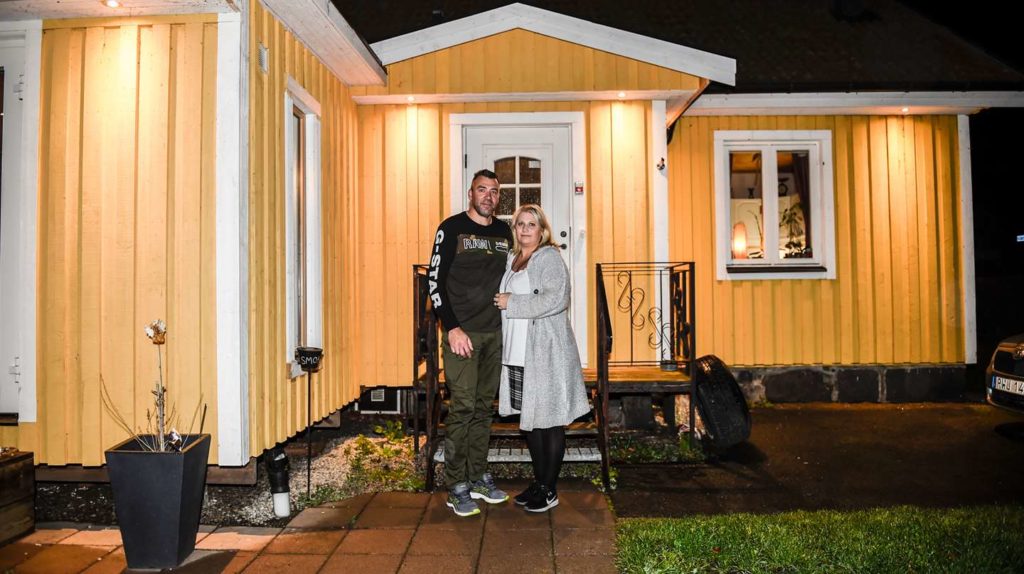
Monika and André have set up their common home outside of Kristianstad, but feel that something is missing – a common child.
Photo: Jens Christian
"In addition, we learned through further investigations that both I and André had several physical barriers," says Monika.
It was barriers that the healthcare system had failed to see from the start. Had it been discovered in time, Swedish healthcare should not just have closed the door.
Monika had no passage at all in her fallopian tubes, which meant that eggs and sperm could not meet. André discovered that he had a so-called chromosomal disorder, which also obstructed a pregnancy naturally.
Just cost money
After all, the couple received a referral to a fertility clinic in Copenhagen. There, Monika's eggs would be fertilized with André's sperm in the laboratory and then put back in Monika's uterus.
But the only thing the couple brought home from Denmark was an invoice of 21,000 Danish crowns for the visit.
"Then we said to each other that we would not expose ourselves to this anymore. Just having a long needle pushed into the vagina for taking out the eggs was a horrible experience," says Monika.
All the backlashes led them both to crushing into the wall. Consultations with a psychologist were needed to process the grief.
The months went by and both Monika and André searched for new possibilities.
“By now we realized that the only way forward was artificial fertilization with egg donation.”
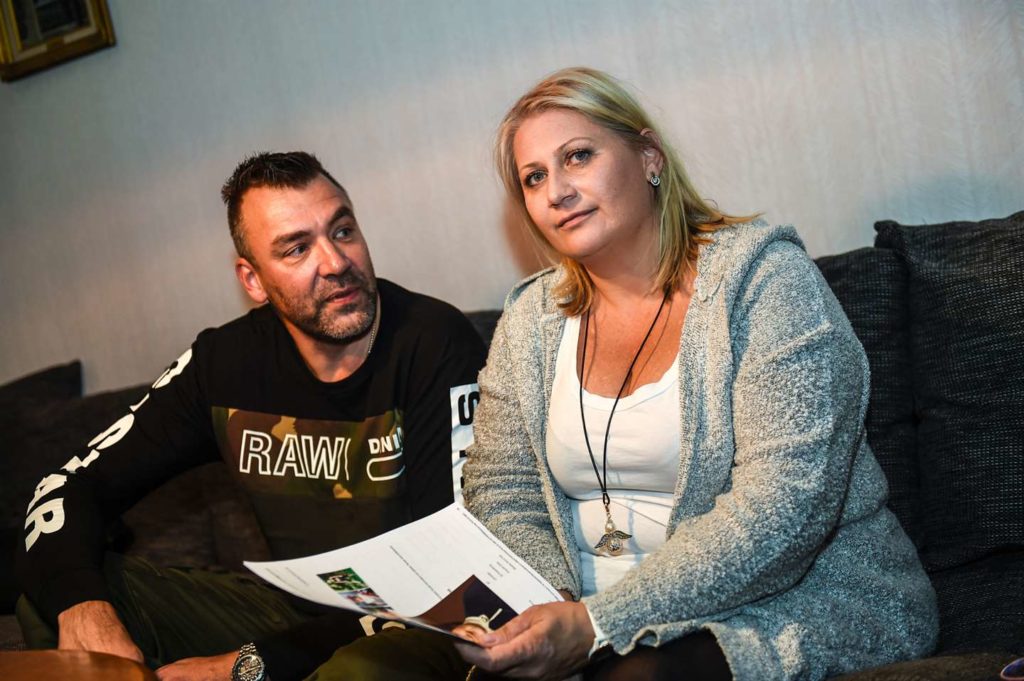
Monika and André look forward with confidence to the visit in Saint Petersburg.
Photo: Jens Christian
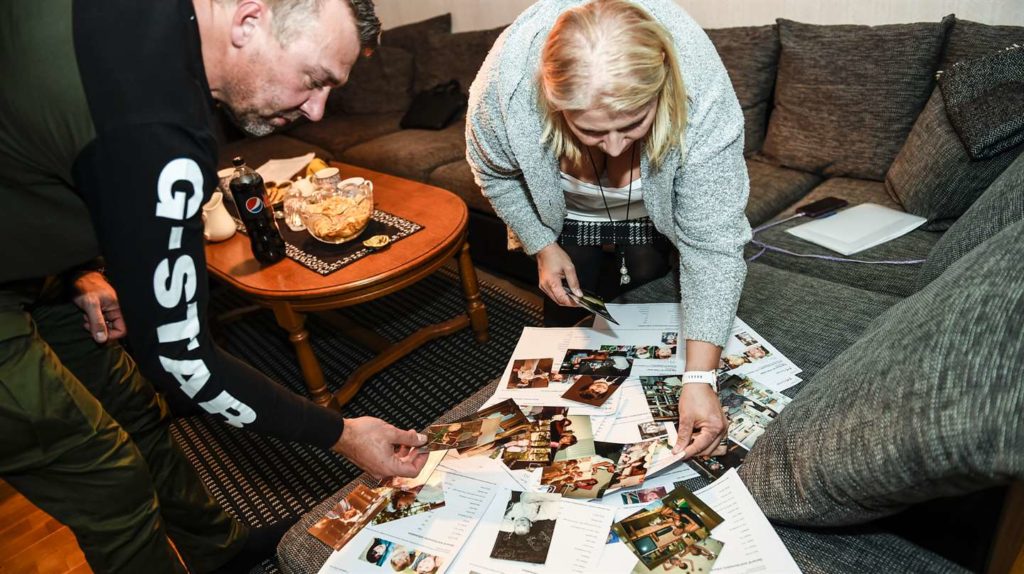
Monika and André have 205 egg donors to choose from.
Photo: Jens Christian
Russian clinic
The couple saw it as a gift from another woman who understood the struggle for a child and that through the procedure they would be successful in their pregnancy.
But in Sweden, the door was still closed.
The couple looked at clinics in Spain and Poland. They read everything they came across and participated in online discussion groups about involuntary infertility, IVF and egg donations.
Finally, they decided to contact the fertility clinic Scanfert in Saint Petersburg, Russia.
The clinic profiles strongly towards Scandinavia and promises a child guarantee – the one who does not have a living child gets 80 percent of the money back.
According to Monika and André, the difference is also that the eggs are fresh and grown in a laboratory for five days into embryos. The process is considered a more certain way to a pregnancy.
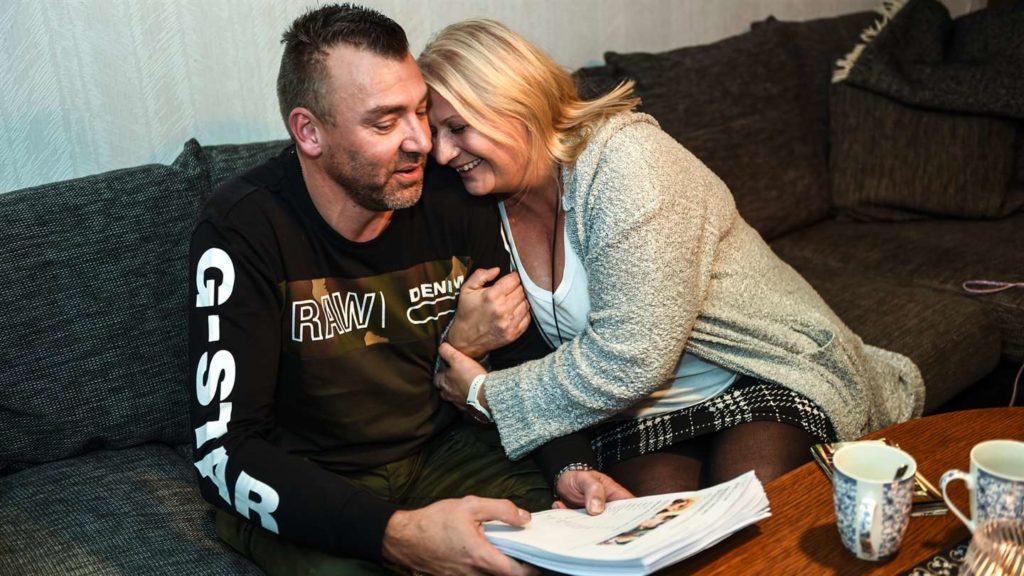
If we are not torn apart after this, there is nothing that can separate us, Monika and André argue.
Photo: Jens Christian
During the treatment, only one fertilized egg is inserted into the woman's uterus. The remaining eggs are stored and frozen with the possibility of later use.
The price customers pay for a successful pregnancy and childbirth is 22,000 euros – about 240,000 SEK. The package includes three attempts with egg donation.
It also includes transfers from the airport to the hotel and a one-day tour of Saint Petersburg. All money must be paid in advance.
But there is a baby guarantee – whoever does not deliver a living child receives 80 percent of the sum back.
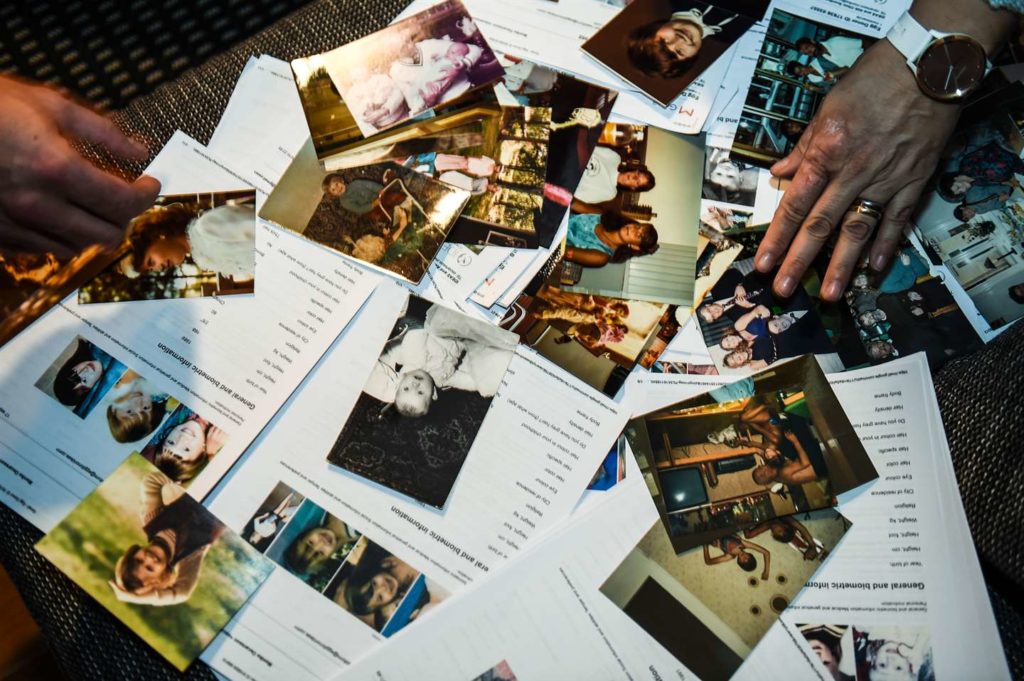
The prospects contain all information about the egg donors, length, weight, hair color, diseases and other things. Photo: Jens Christian
Have taken loans
Monika and André report that they have borrowed from the bank to finance the visit to Russia.
"We have also friends and companies who supported us in this process and donated nearly 60,000 SEK for us to get started," says Monika.
The couple expects that the final note, including travel, medication and lost job earnings, will be over 300,000 SEK.
So far, there is only a good feeling, nothing like that afterwards they may feel cheated.
"When the clinic visited Gothenburg to inform about itself, we had personal contact with their chief physician. She gave a professional and reliable impression," says Monika.
The couple also followed what was written online. There, several Swedish women depict how their childhood dream came true. A woman writes how she baptized her child with the second name Olga, after the Russian chief doctor.
Monika’s and André's view is that the clinic succeeds by personalizing the treatment.
In the beginning of next year, the idea is that they will travel to Russia. Then the child can be born within one year.
At that time Monika will be 45 and André 48. But none of them feel too old.
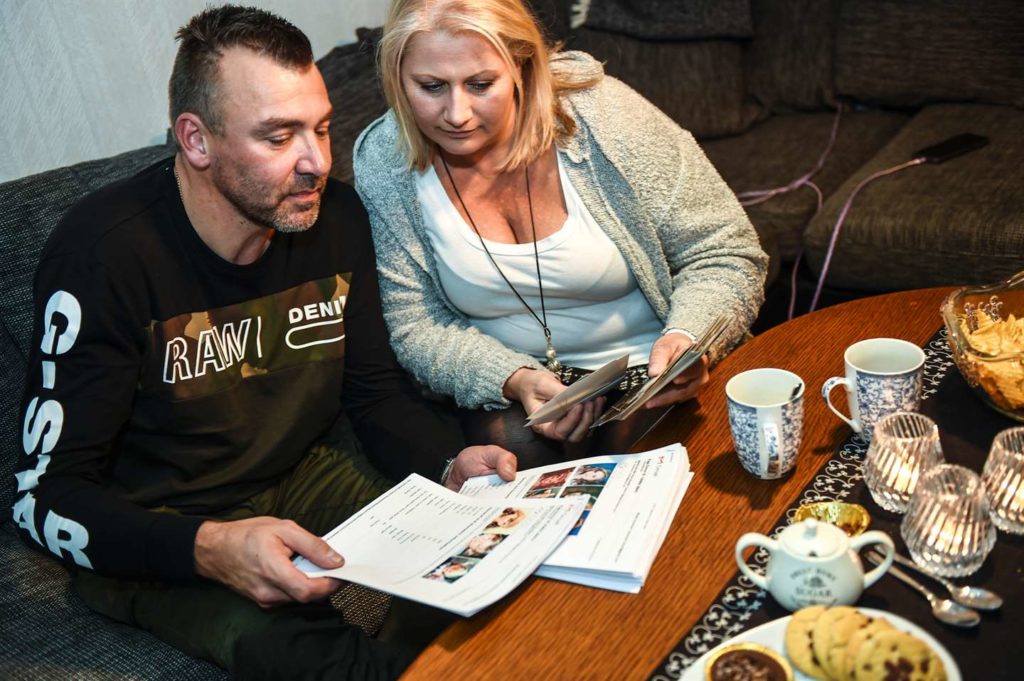
Monika and André received several hundred suggestions for egg donors and eventually chose from 22.
Photo: Jens Christian
“A uterus has no age restriction. There are many women who have been much older,” says Monika.
"And a man can make a woman pregnant throughout his whole life, so why should there be an age limit," says André.
Can choose hair color
Both say they walk into this with open eyes.
"We have come to a point where we feel safe and believe in opportunities. If it fails, we can say to ourselves that we have at least done what we could.”
For the moment Monika and André are at home in their villa, thinking of which woman will be their egg donor.
The couple has received a pile of 205 descriptions of Russian donors and finally decided to choose from a group of 22. On the prospect there are pictures showing the look of the women as children and teens.
There are also notes about what hair color and eye color the donors have. And what education and occupation the women have. Disabilities and possible sexually transmitted diseases are also addressed. None of the donors are over 35 years old.
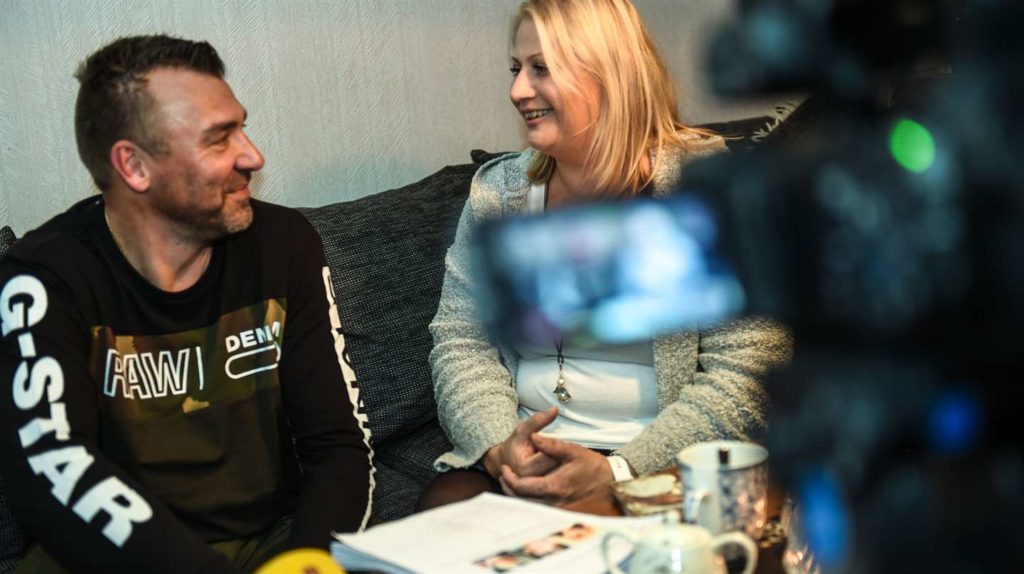
"André works as an electrician and Monika as an educator. Both say they love children. I chose my profession just for that," says Monika.
Photo: Jens Christian
Those who wish can also choose sex for the baby and find out in advance, at an additional cost.
“We have basically chosen who we want to use as donor. It's a 30-year-old woman and we have seen a picture of her as adult as well. I was almost shocked, because it was a copy of Monika, says André.
The dreams have already fluttered away. If they succeed the first time, another baby can come a year later, they argue.
"For me, the sex does not matter, the dream of a child regardless of sex is the most important," says André.
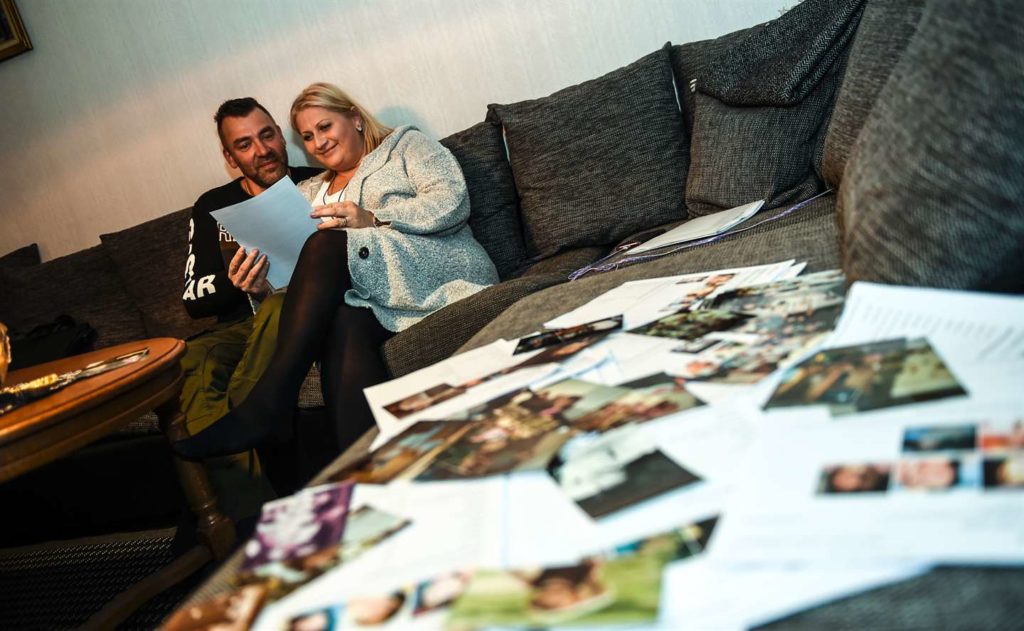
On the table there are suggestions for possible egg donors.
Photo: Jens Christian
Baby stuff prepared
Monika says she does not want to know the sex, but wants it to be a surprise.
Before leaving the couple, they show a felt made by square patterns. In a box there are also some baby clothes, books and a soft animal toy.
"We do not want to plan too much, but it's hard not to do anything in advance," they say.
At the same time, Monika and André are clear that they feel deceived by the Swedish society.
“Why should anyone have the right to decide when it's time to have children? It's a question you should ask politicians. The difficulty of having children is a common disease, every tenth couple is affected,” both say.
When we say good bye to Monika and André, they stand on the stairs and embrace each other in a long love hug.
"The fight for a child we have in common and this has strengthened us a lot. If we do not separate because of this we probably never will,” both say.
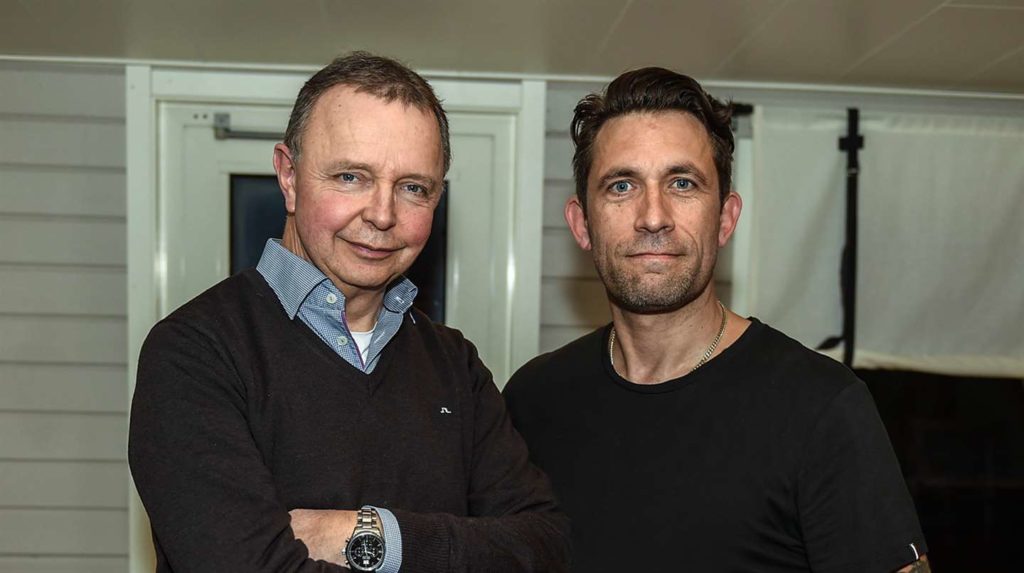
Text: Lars-Olof Strömberg Foto: Jens Christian


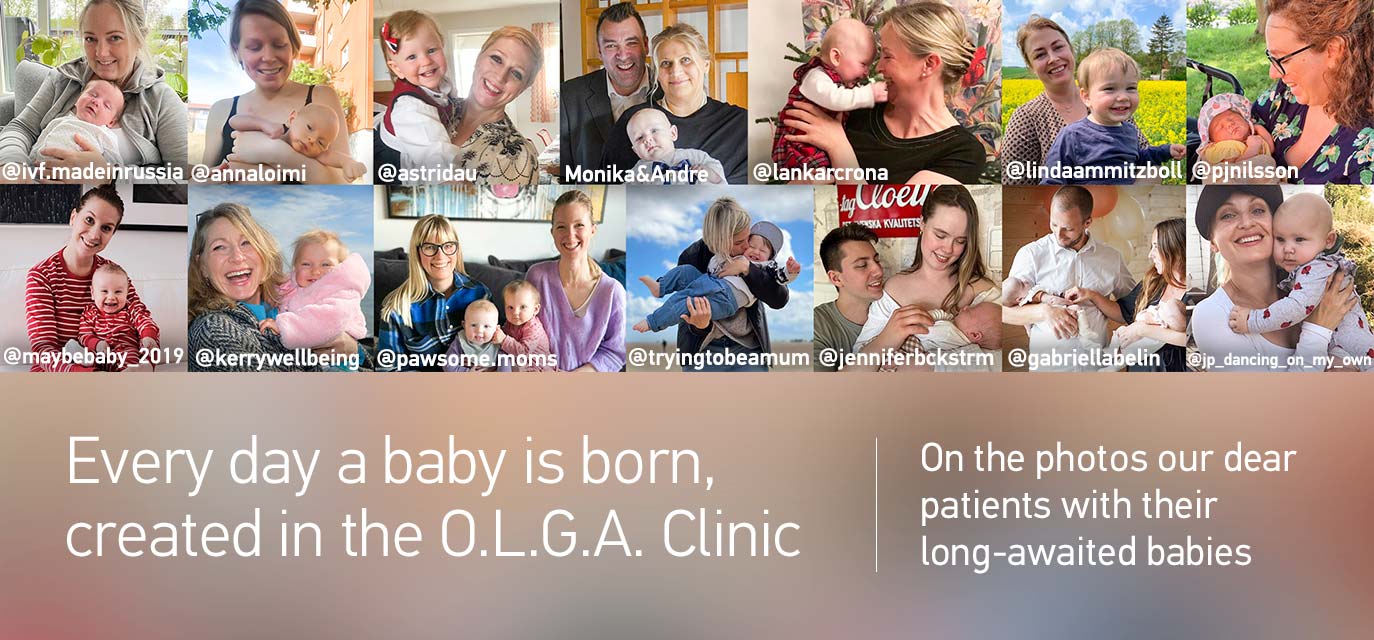

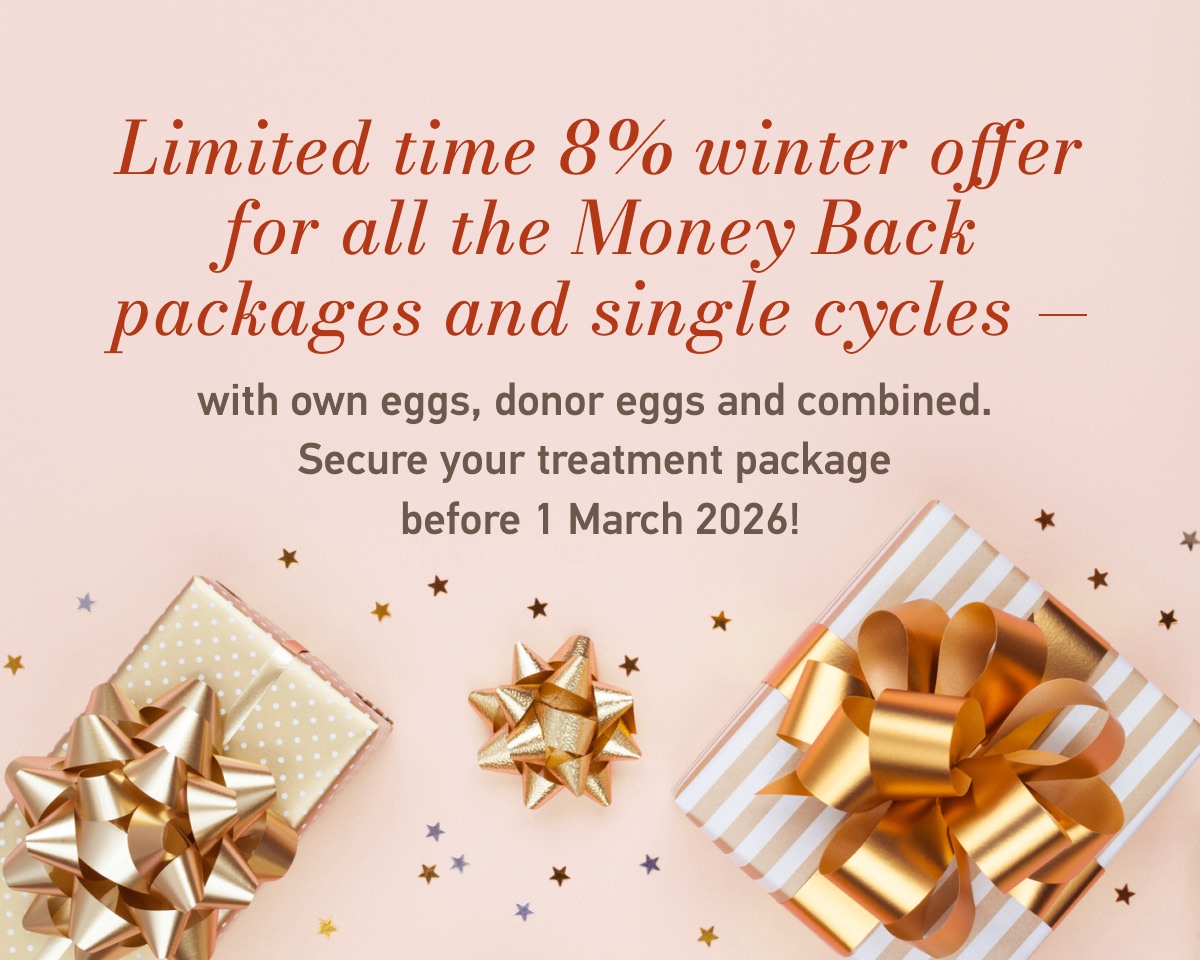
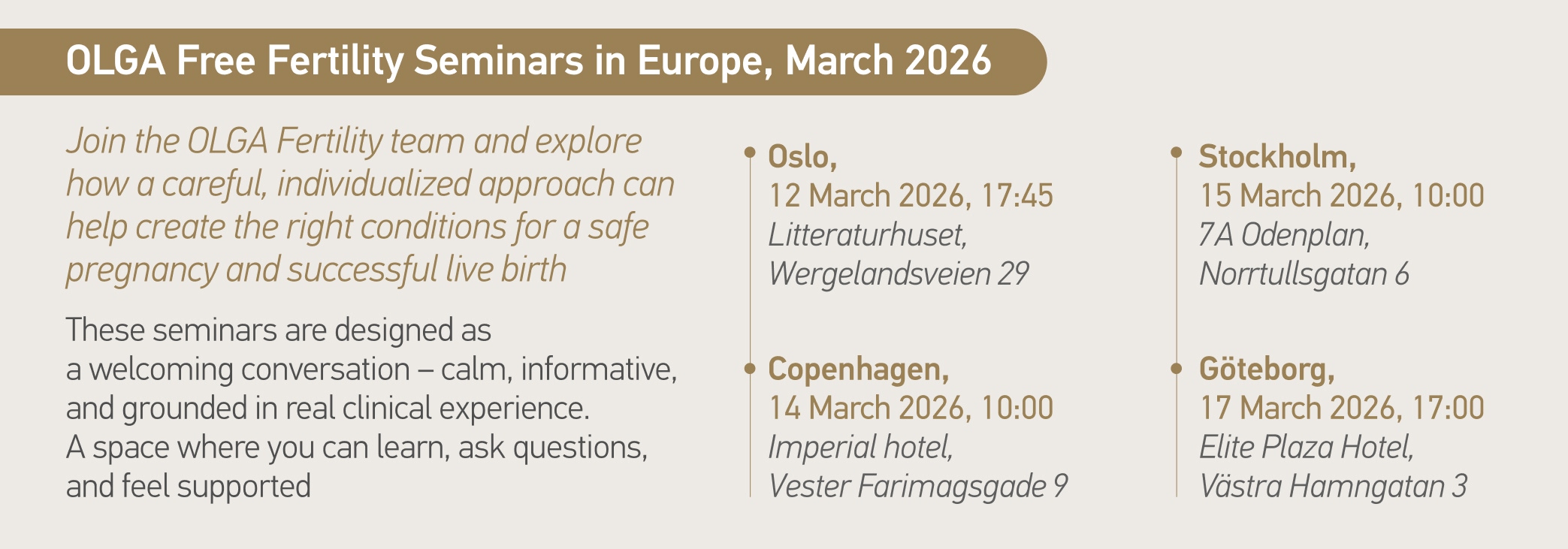
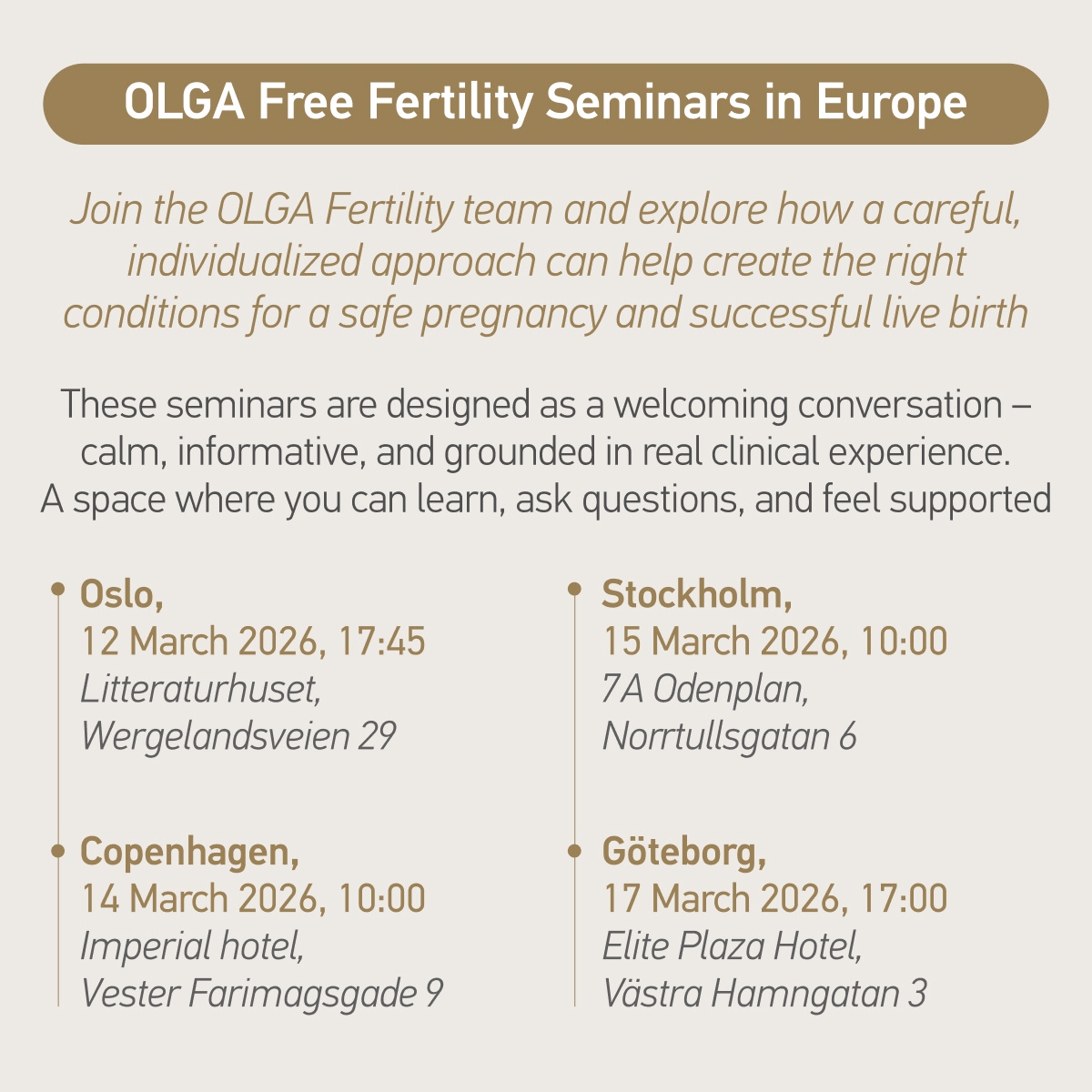


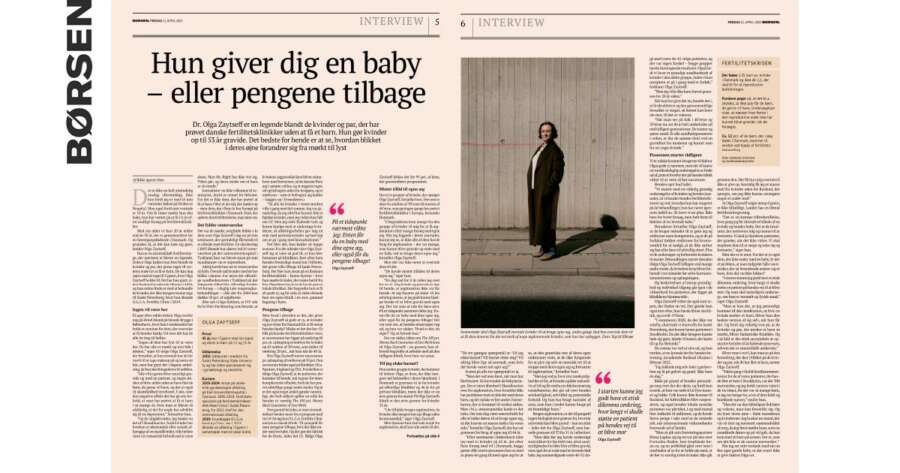
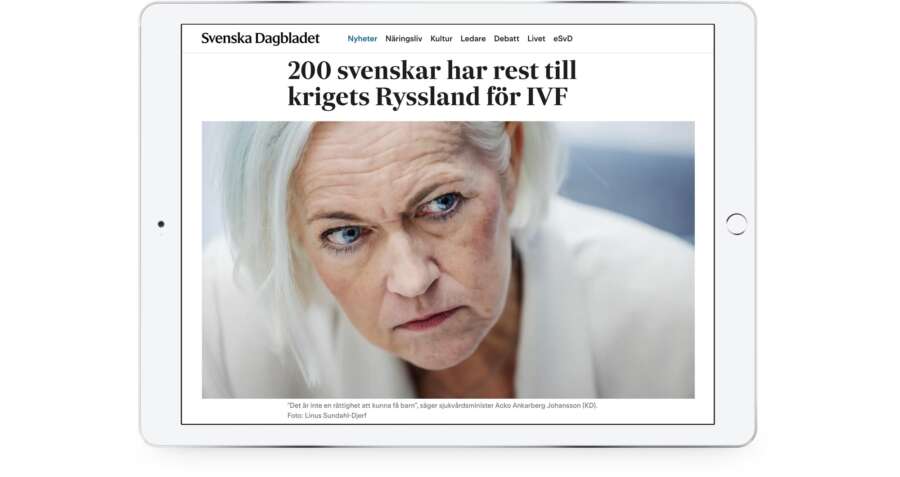
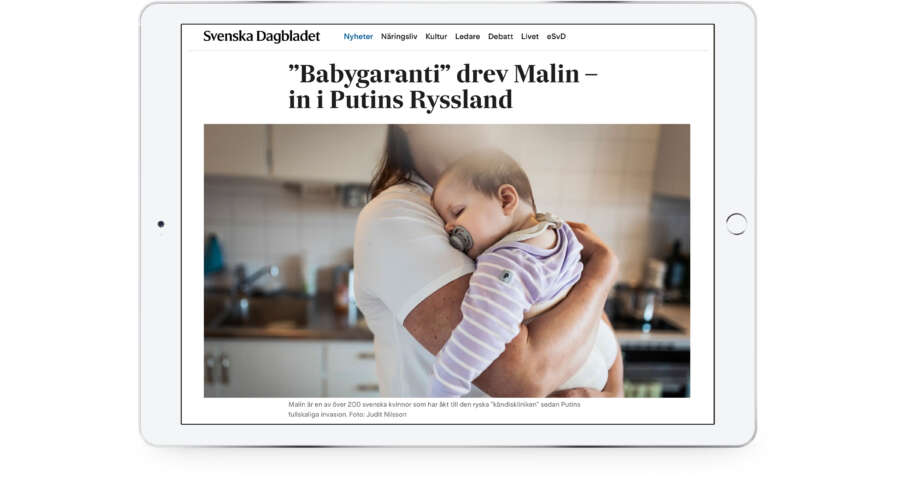
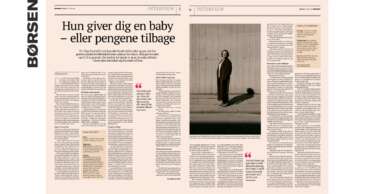
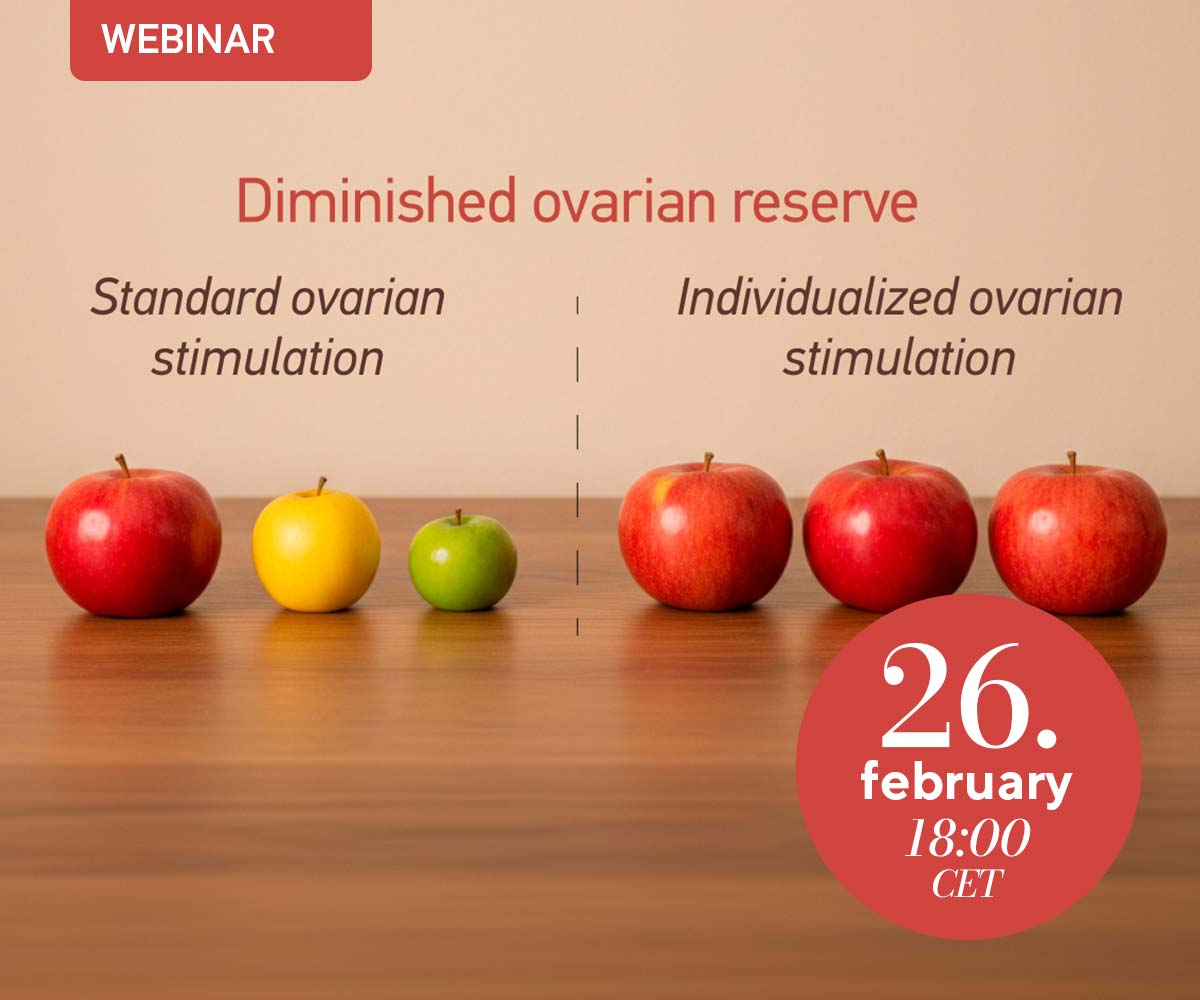
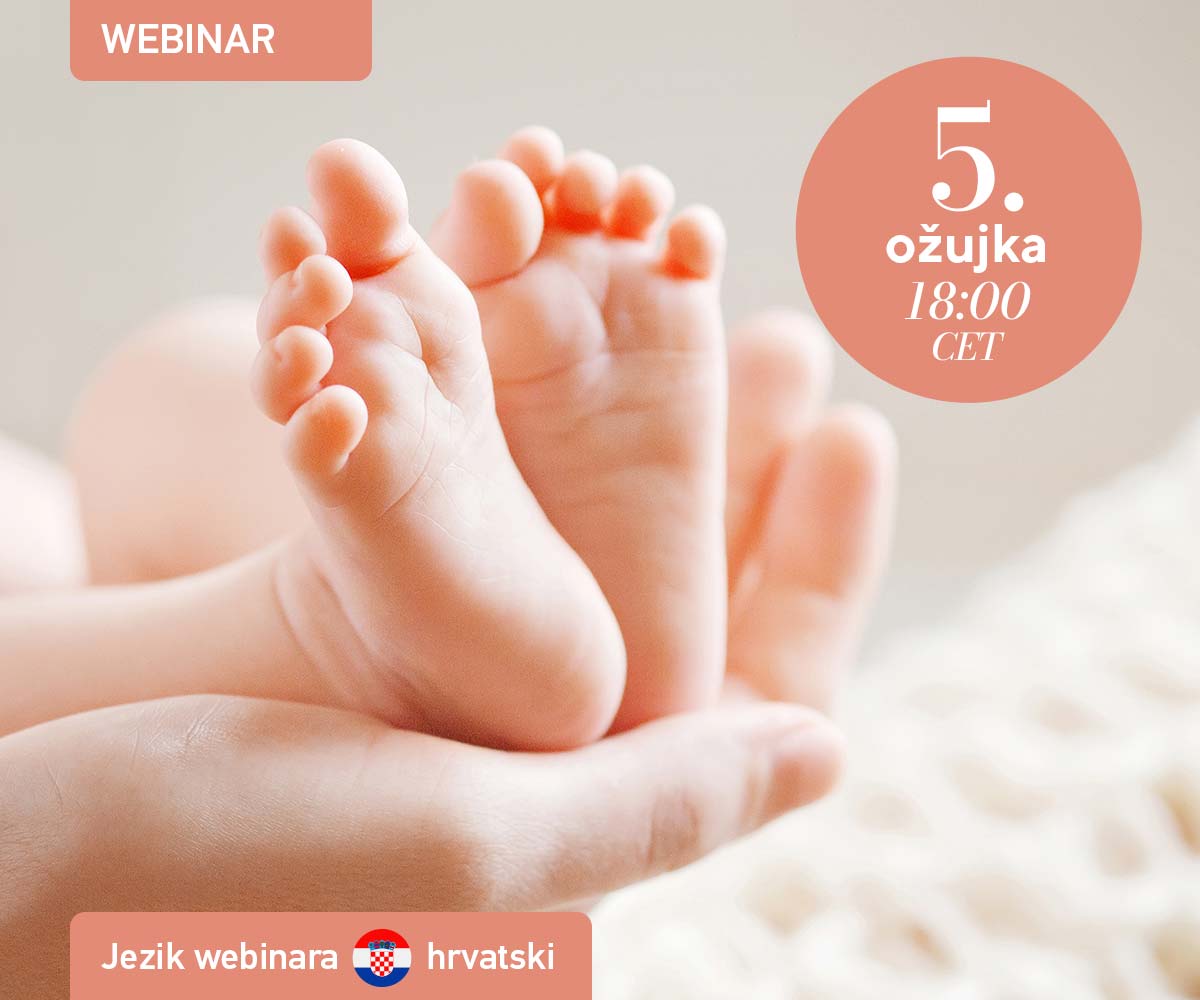
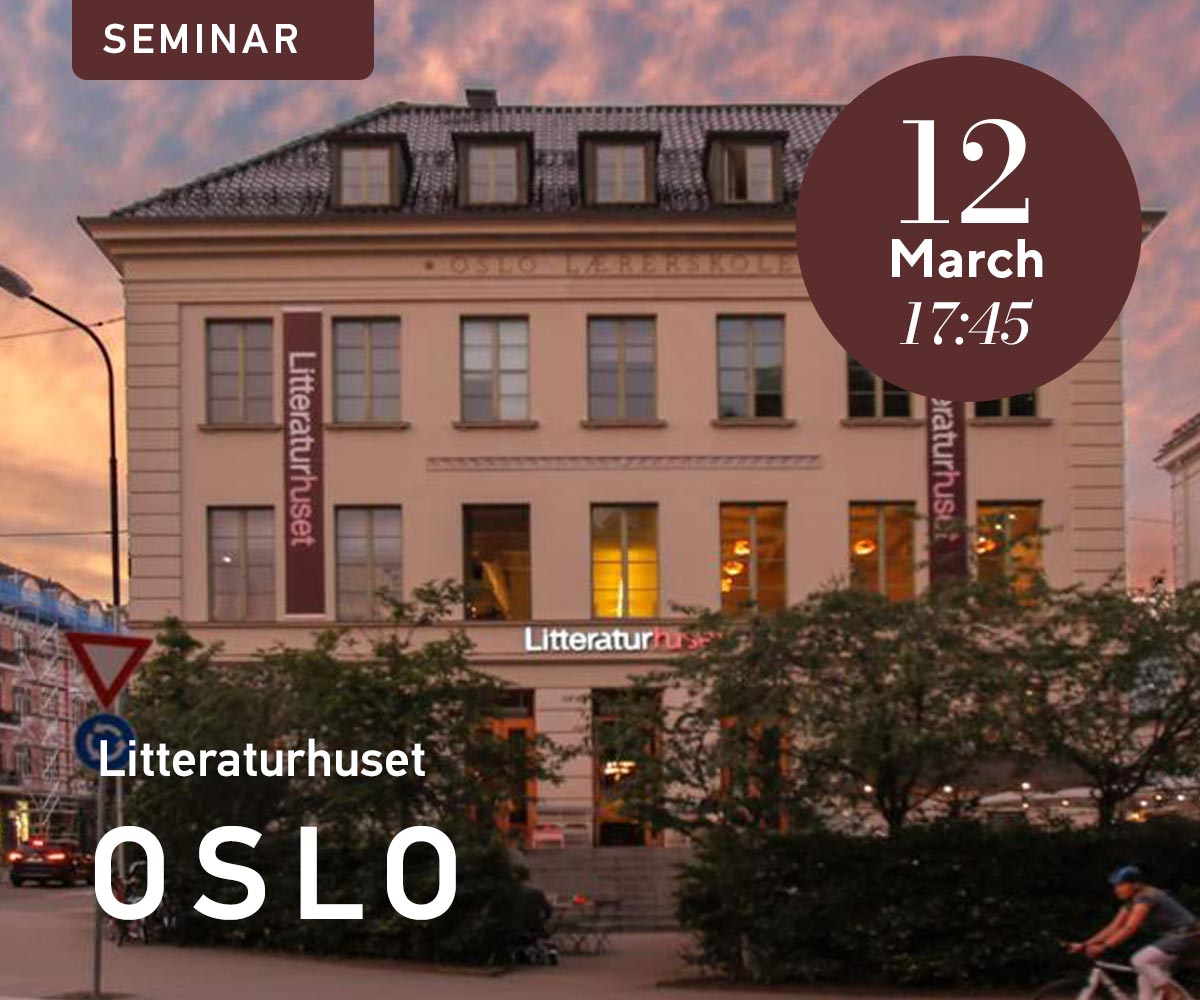
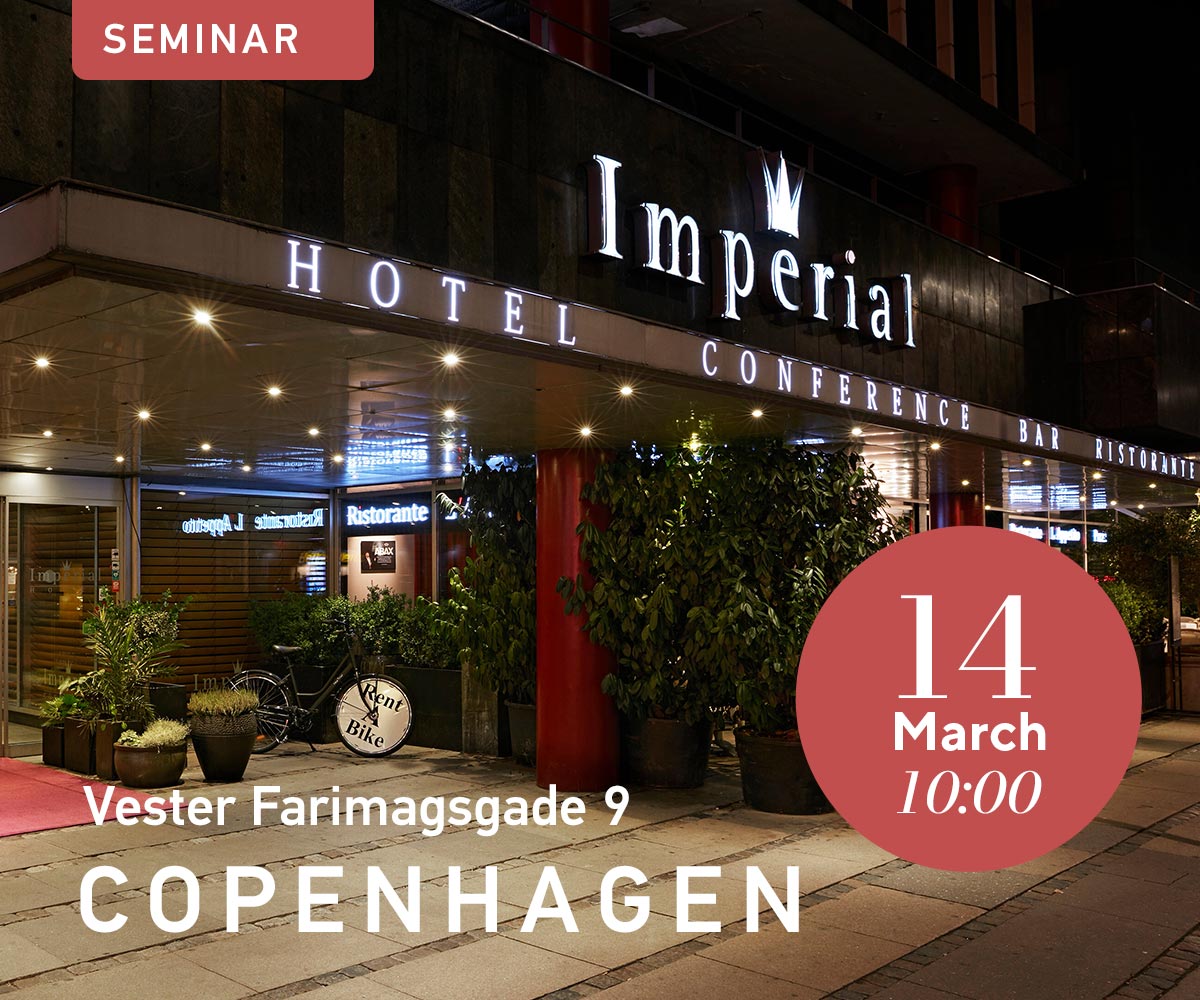
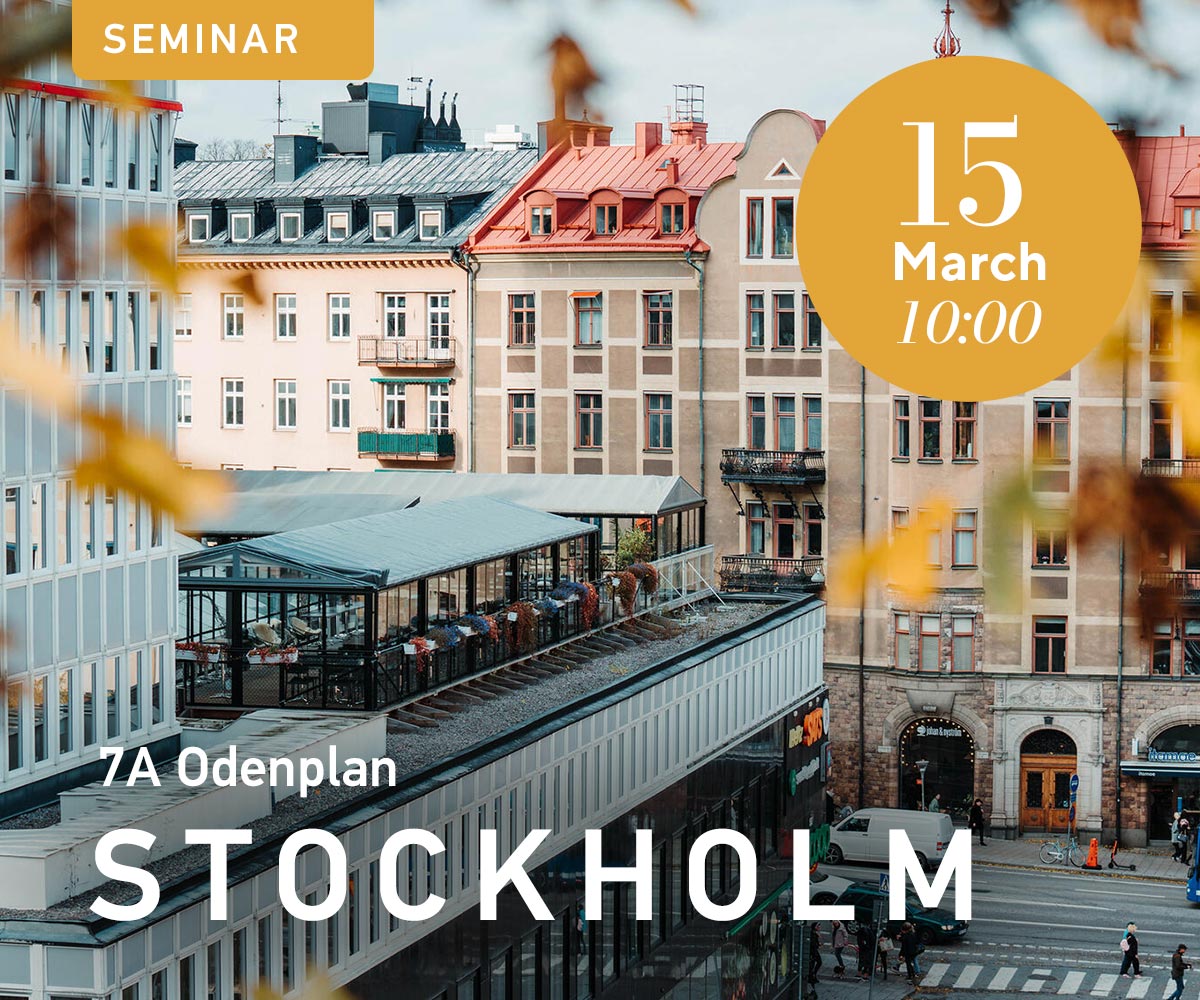
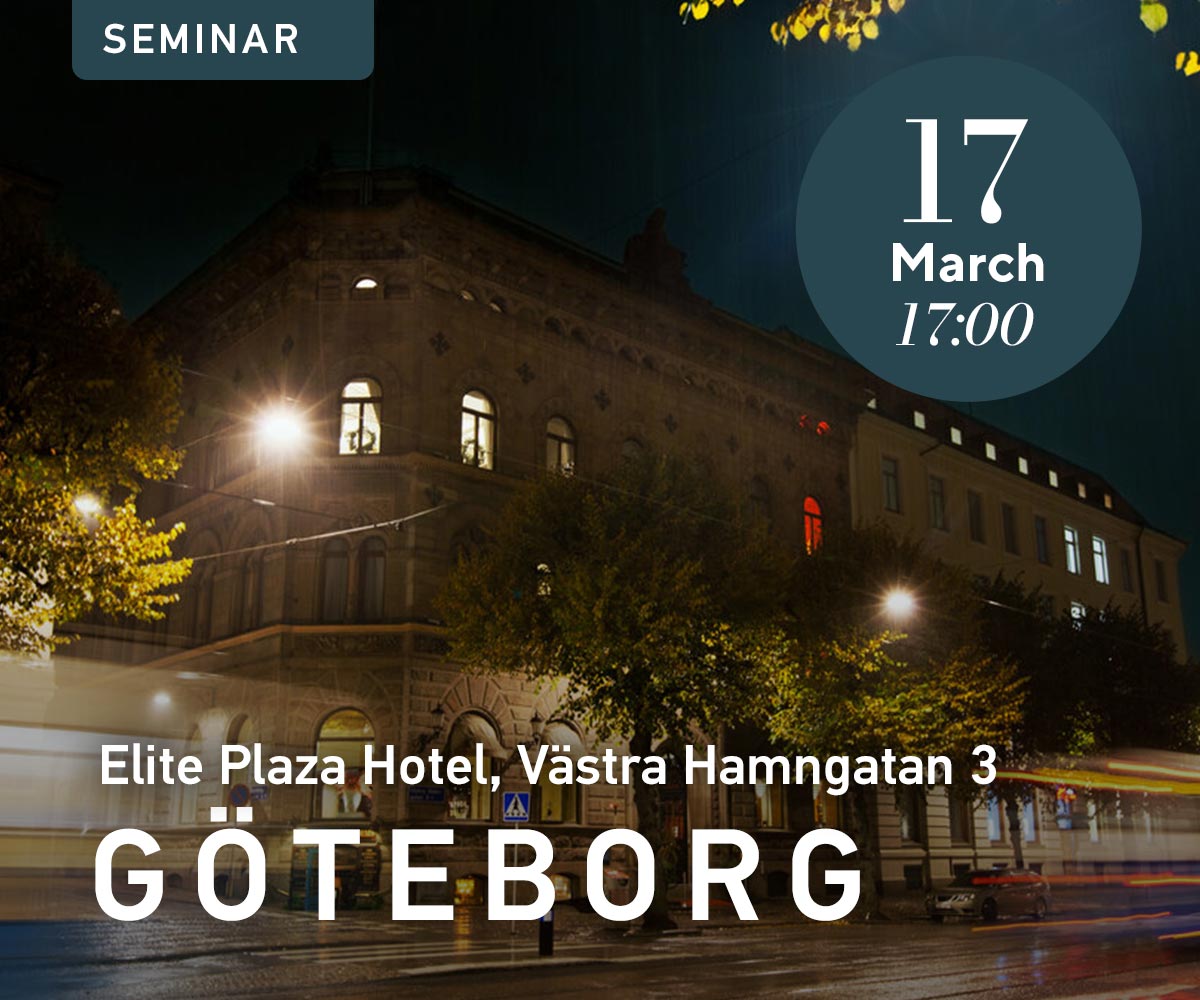
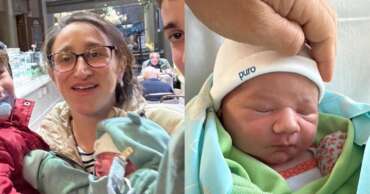
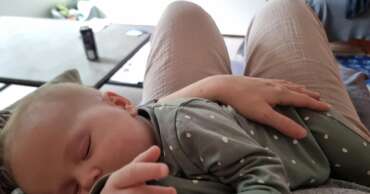
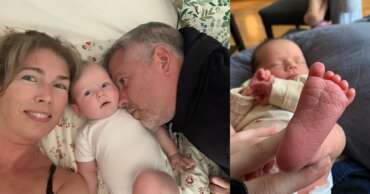
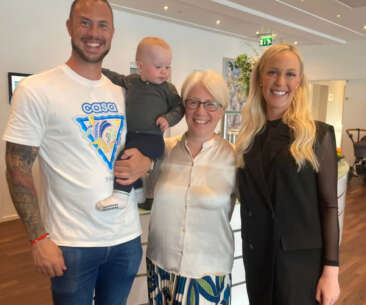
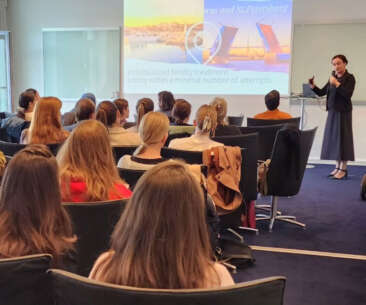
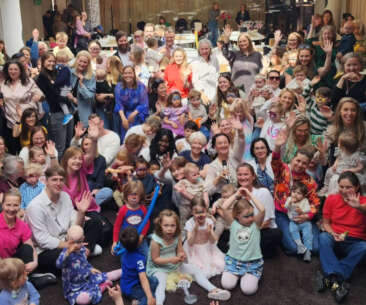
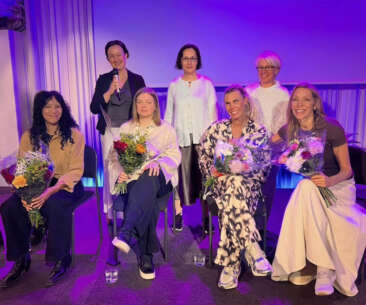
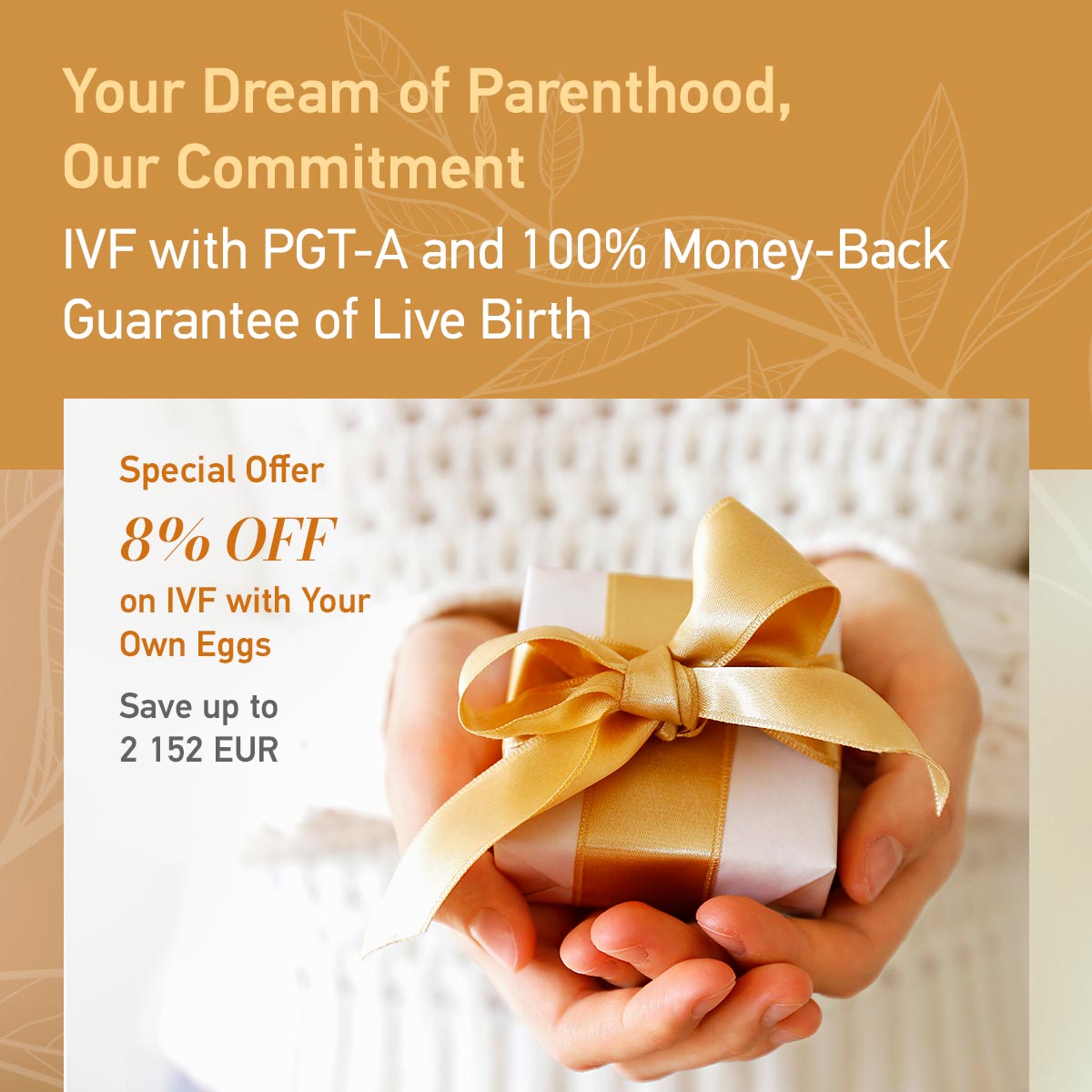
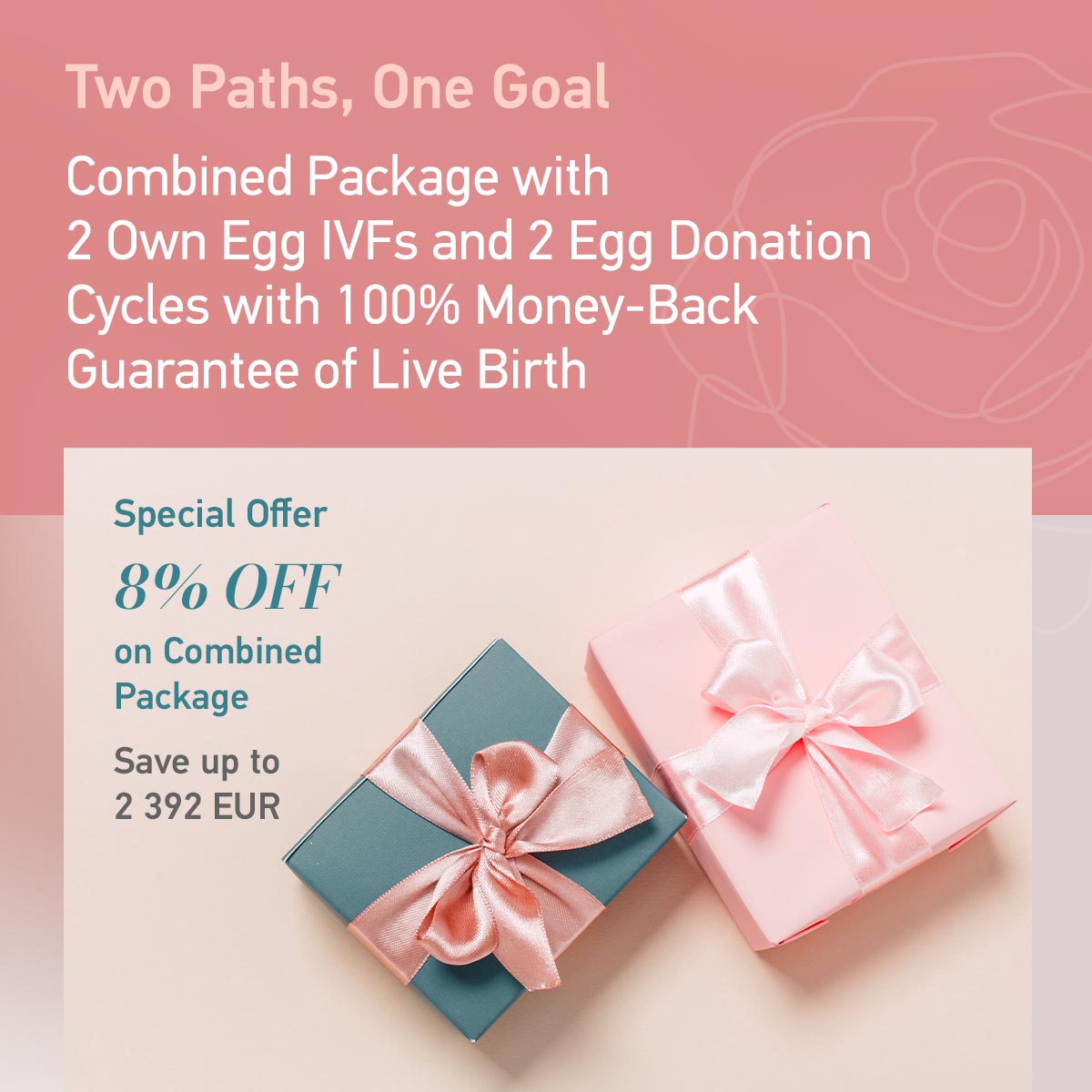
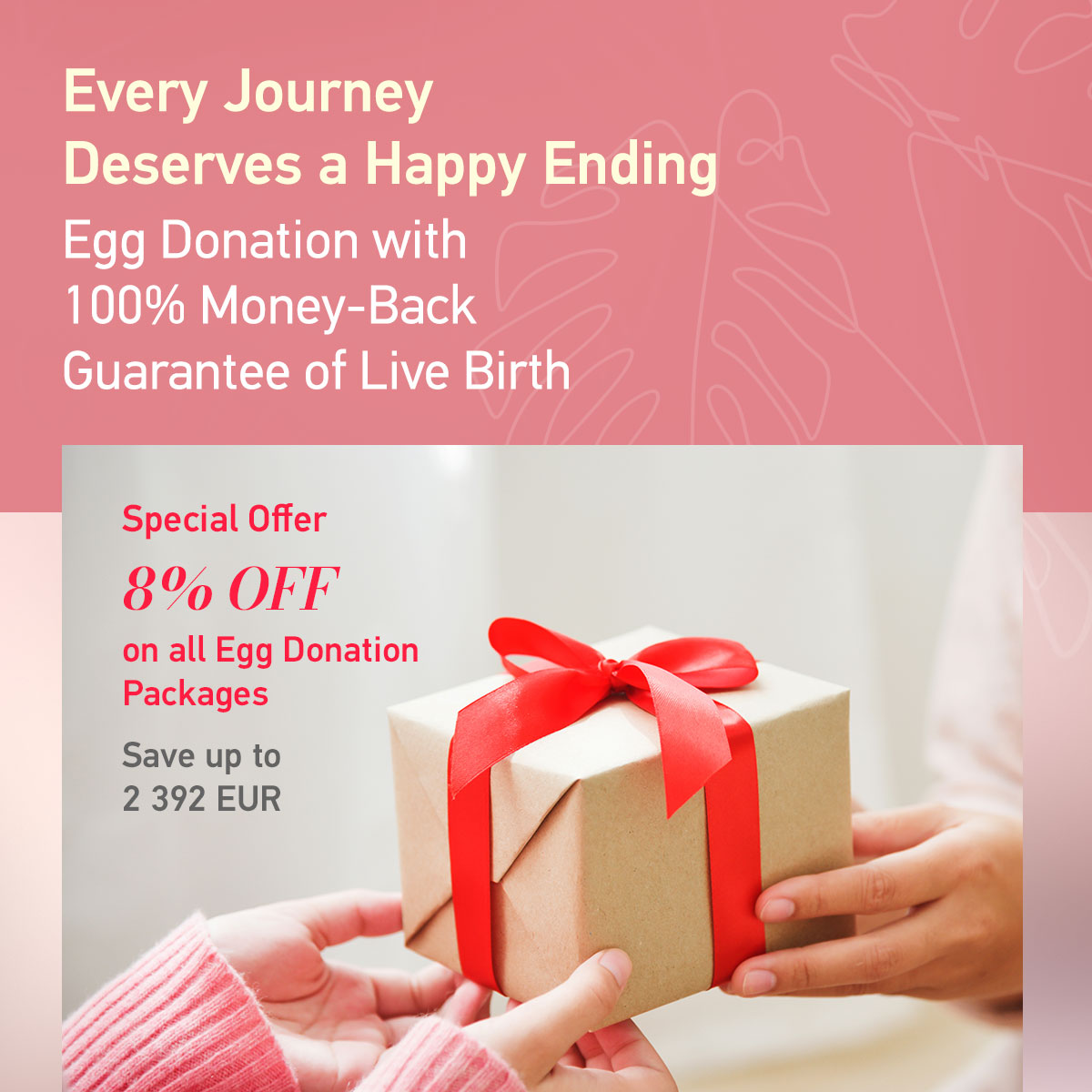



Comments are closed.